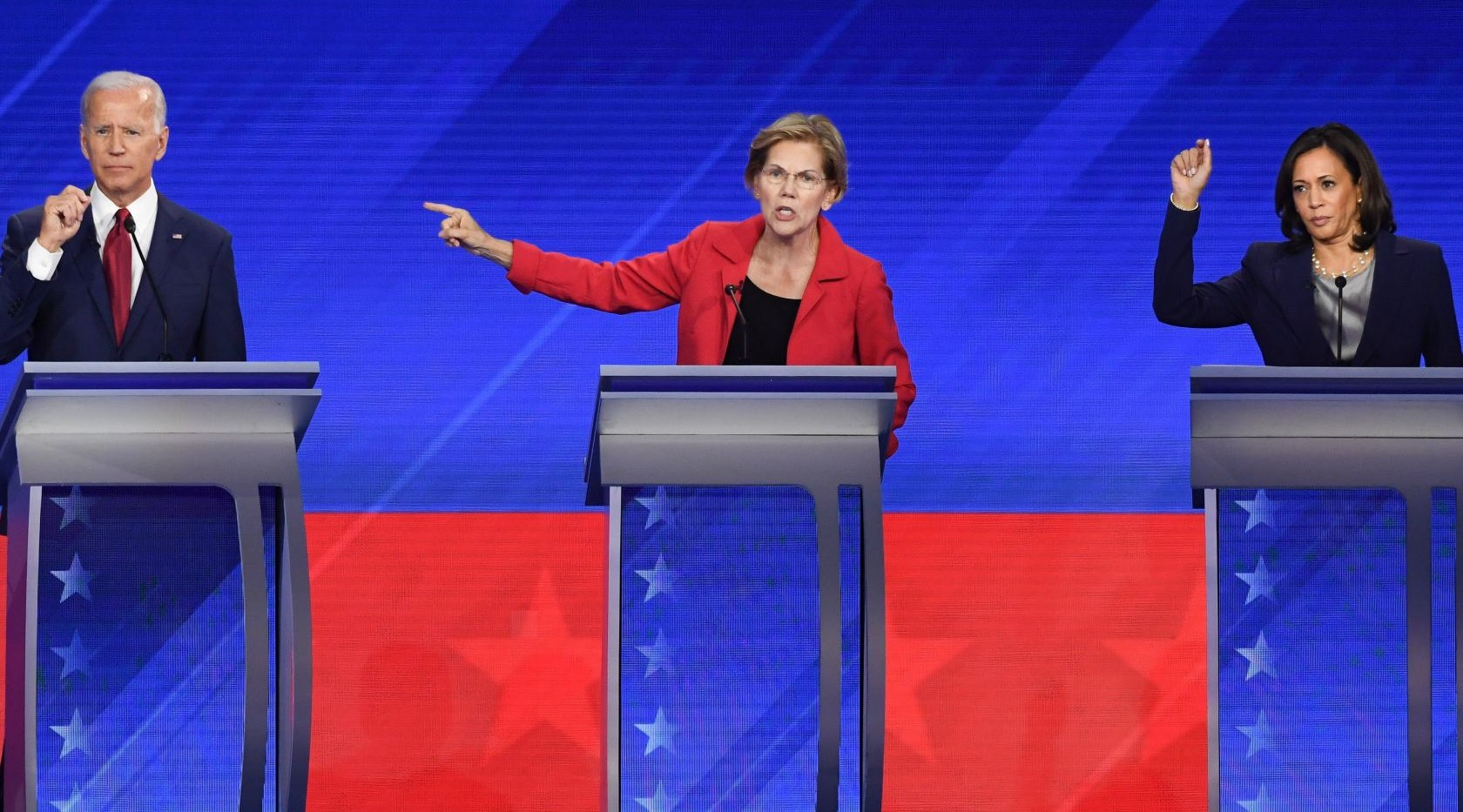With all the controversy surrounding the decision by the Democratic National Committee’s (DNC) decision to allow the debate lineup to expand in October after being cut down in September, it appears the November Democratic Debate will cause an extreme jolt in the opposite direction. According to some reports, the DNC is considering raising the threshold from 2% support in at least four polls, up to a number as high as 4% in a yet-to-be-named number of polls.
Even if the required number of polls remains at the same, at four, there are a handful of major candidates who have been dancing around the edges of getting 4% support for months now and it’s possible that the November stage could be rather sparse in comparison to September and October.
With growing scrutiny from campaigns over being held off the stage, the DNC is under pressure to become more consistent moving forward:
But in November the DNC, which is increasingly under fire for its handling of presidential debates, is likely to raise the polling requirement above 2 percent, according to multiple sources involved in the process who spoke to Yahoo News about internal deliberations on the condition they not be identified.
What’s not clear — and seems to be unsettled still — is how high that number will go. Even if it went up only 2 points to 4 percent, it would put major stress on candidates like Beto O’Rourke and Sen. Cory Booker. Neither has received more than 3 percent in any qualifying voter survey yet. Other candidates, like Sen. Amy Klobuchar and former Housing and Urban Development Secretary Julián Castro, have hit 4 percent only once so far.
If the polling threshold jumps up to 4%, then it’s possible that Beto O’Rourke, Amy Klobuchar, Julian Castro, and Cory Booker, and Andrew Yang are all cut from the debate stage.
That would basically leave Joe Biden, Bernie Sanders, Elizabeth Warren, Kamala Harris, and Pete Buttigieg on stage in November.
If the polling requirements jump, it’s logical to also believe that the fundraising requirements might also be tightened, which would throw a wrench in the plans of candidates who spent months begging for $1 donations to give them enough unique donors in different states.
What if the DNC says small-dollar donations, like under $100, no longer count and each candidate needs larger donations to make the cut? The Yahoo News report says that’s possible, too:
It’s also unclear whether the DNC will continue to make small-dollar donations a criteria for entry into the debates.
“I think the donor thing may be moot at this point. … The candidates left standing would have proved their chops on the donor front,” said one former Democratic Party official. “Plus, it has come under the most criticism.”
Indeed, the DNC has been pilloried from various directions for the small-dollar-donor requirement. For the first two debates, in June and July, qualifying candidates had to attract 65,000 unique donors — who usually give between $1 and $20 — with at least 200 donors from 20 different states.
But many candidates have complained that this metric, which was intended to “give the grassroots a bigger voice than ever before,” according to the DNC, has actually just caused their campaigns to waste money.
The story goes on to note that campaigns have had to spend a lot of time and resources dropping campaign money on targeted ads trying to get small donations just to make the debate stage throughout June, July, and August. Rather than give a voice to small-dollar grassroots donors, the conditions simply created a vacuum where campaigns had to solicit donations, and sometimes solicited donations for each other, just to keep their national campaign presence afloat.
What does this all mean for the November debate, the event which will be fifth Democratic debate of the year? The result could be a much, much smaller debate stage, perhaps locked at just six candidates, or fewer, depending on what the DNC decides to do with the rules for participation moving forward.
At the moment, the DNC has a small handful of unhappy candidates griping about arbitrary poll requirements and arbitrary lists of approved polls. If the threshold gets pushed higher, which it almost certainly will, the list of disgruntled candidates will grow larger than the list of candidates who actually make the debate stage.
Perhaps the biggest issue that candidates are complaining about, and the issue with some merit, is that the debate participation rules are changing on the fly. The list of qualified polls and original debate participation requires were released back in May, but the tightening of the requirements is being done month-to-month it seems. This leaves candidates guessing on how they should best spend their limited resources.
If the November Democratic Debate does end up with just six candidates on stage, it may be a relief for viewers and for candidates alike since there will be more time for expanded answers. On the other hand, cutting the debate stage too early could risk a backlash by forcing voters to choose from a thin field. The DNC is in a rather unenviable position.
Donate Now to Support Election Central
- Help defend independent journalism
- Directly support this website and our efforts
